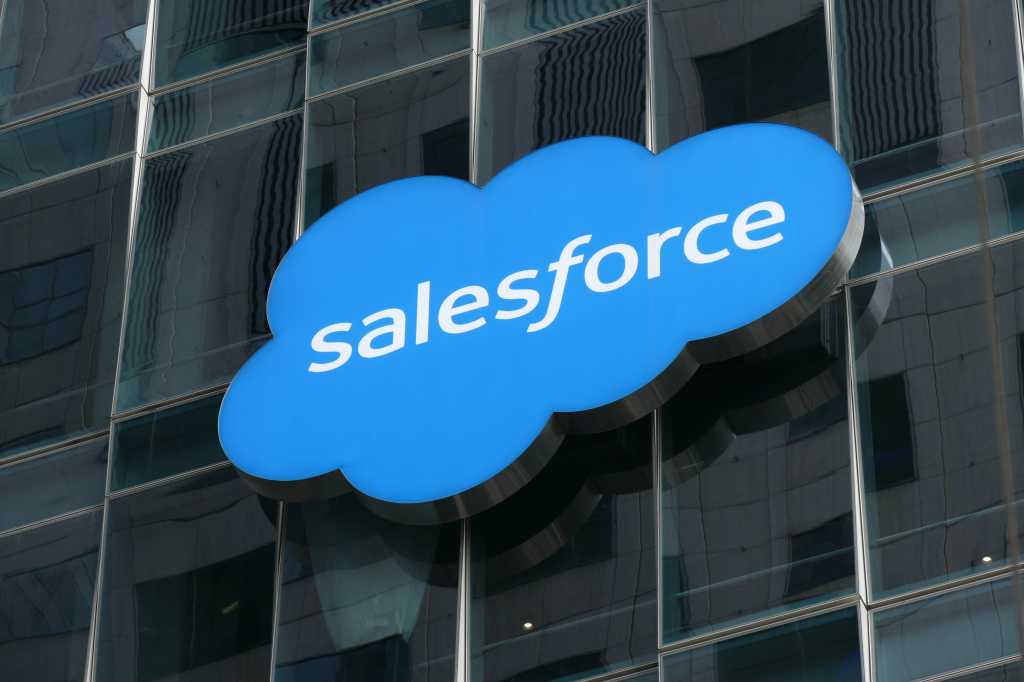“These models, whether running through Amazon SageMaker or Google’s Vertex AI, will connect directly to AI Cloud through the Einstein GPT Trust Layer. In this scenario, customer data can remain within the customers’ trust boundaries,” the company said.
This isn’t the first time someone has offered these capabilities. Several other prominent technology vendors including AWS and IBM already provide similar offerings in the form of Amazon Bedrock and IBM Watsonx.
How do multiple LLMs work together?
Contrary to practices from some large software vendors that claim to mix different LLMs together to offer generative AI applications, Salesforce’s AI Cloud “chooses the right LLM for the right task,” according to the company.
“The determination of the right LLM is based on outcomes that the system has seen previously,” Govindarajan said, adding that the LLM recommendation engine is learning from the data across all Salesforce deployments.
Giving the example of Marketing GPT creating a landing page, Govindarajan said the system tracks how that landing page has performed, as performance data is also stored inside Salesforce’s Marketing Cloud.
“If the landing page has really worked well, then it will suggest the same LLM it has used to build the landing page to another user who also wants to create a similar landing page,” Govindarajan said.
This same logic is also applied to the multiple flavors of Einstein GPT across different Salesforce Cloud offerings that continuously train the assistants, Salesforce said.
“These generative AI assistants such as Slack GPT or Tableau GPT track if the user ends up following a suggestion. It also tracks the edits or changes to the generated result. This helps it to learn continuously and become more personalized for users,” Govindarajan said.
Einstein GPT Trust layer taps IAM
Salesforce’s Einstein GPT Trust layer is neither new nor differentiated, according to Forrester’s Herbert, who says it follows the same principles that most other vendors are offering in terms of providing security. Like most other vendors, Salesforce uses identity and access management (IAM) rights in the enterprise to safeguard data privacy and security, Salesforce’s Govindarajan said.
Salesforce highlighted security features of its Einstein GPT Trust architecture.
Salesforce
“Once a user runs a query on their system, the technology stack behind these generative AI assistants searches the databases about the attribute that it needs and it has access to, followed by the stack creating a semantic search model based on the knowledge graph of the entire enterprise and the employee requesting the query,” Govindarajan said.
“The retrieved vectorized data is kept within the enterprise’s server, masked, and then fed to the large language model to generate a result or response. So, the stack is essentially copying or imbibing the identity and access management policies that are already existing for that employee,” Govindarajan added.
The Einstein Trust layer’s architecture is also built in such a way that once the query is processed, the information contained in the prompt, or query, is not retained, the company said, adding that the generated result is checked for toxicity and an audit trail log for all prompts is maintained.
Availability
The offerings under the AI Cloud, according to the company, will be made available in different phases, with the Einstein GPT and Service GPT being generally available in June.
The company’s Commerce GPT will be made generally available in July. Other offerings inside the bundle are expected to reach general availability next year after being in pilot for the majority of 2023.
It will be interesting to see how customers react to Salesforce’s new offering, which is more of a bundle of existing offerings than a completely new platform. However, analysts believe that Salesforce AI Cloud will help to enforce more trust in the use of generative AI by enterprises.
“Salesforce recognizes that there are barriers to AI adoption — especially trust. So, they are doubling down on this aspect. The other challenge is that we will have a plethora of LLMs soon — open source, public and private, leading to confusion on which one to deploy. So, Salesforce’s AI Cloud is letting the users plug in the LLM of their choice,” said Sanjeev Mohan, principal analyst at SanjMo.

